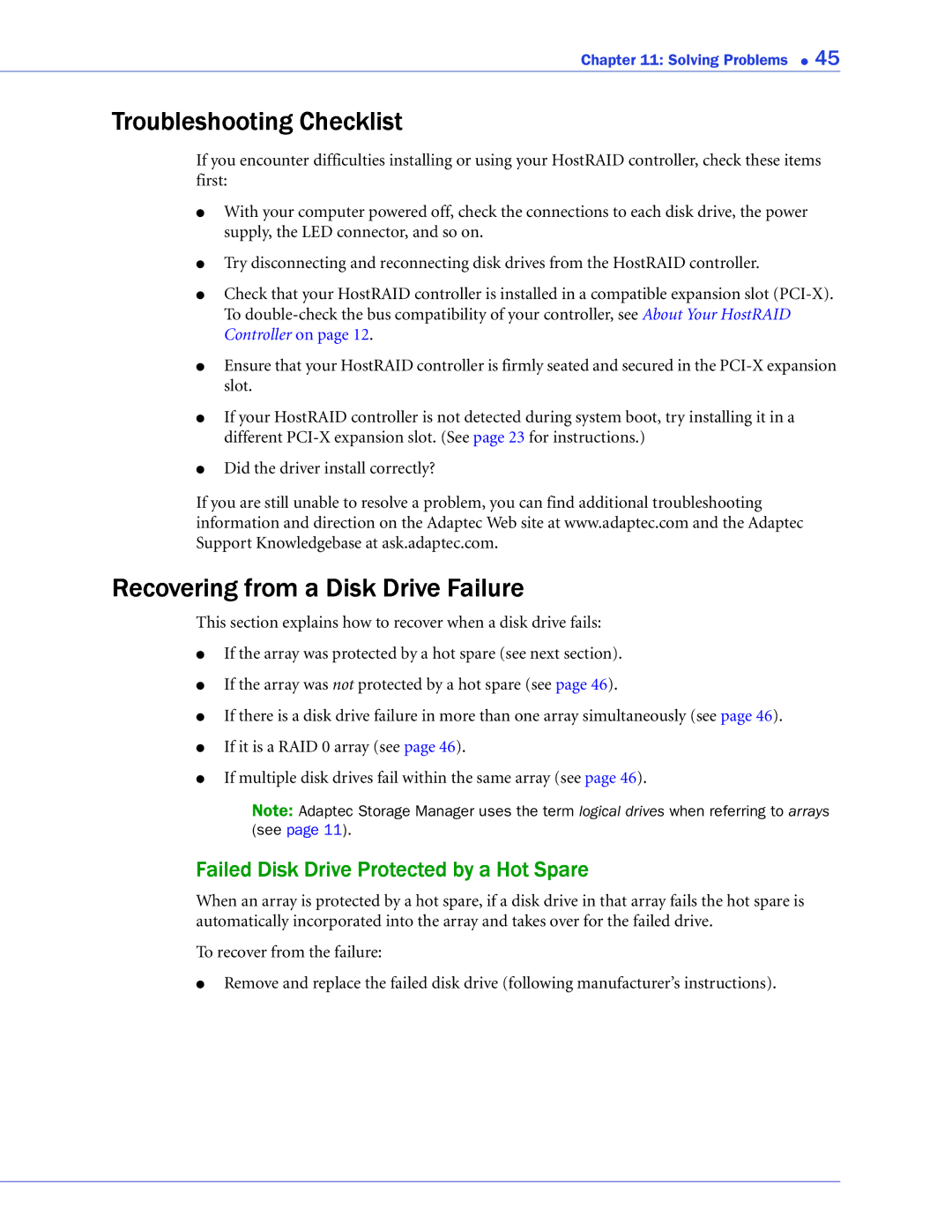
Chapter 11: Solving Problems ● 45
Troubleshooting Checklist
If you encounter difficulties installing or using your HostRAID controller, check these items first:
●With your computer powered off, check the connections to each disk drive, the power supply, the LED connector, and so on.
●Try disconnecting and reconnecting disk drives from the HostRAID controller.
●Check that your HostRAID controller is installed in a compatible expansion slot
●Ensure that your HostRAID controller is firmly seated and secured in the
●If your HostRAID controller is not detected during system boot, try installing it in a different
●Did the driver install correctly?
If you are still unable to resolve a problem, you can find additional troubleshooting information and direction on the Adaptec Web site at www.adaptec.com and the Adaptec Support Knowledgebase at ask.adaptec.com.
Recovering from a Disk Drive Failure
This section explains how to recover when a disk drive fails:
●If the array was protected by a hot spare (see next section).
●If the array was not protected by a hot spare (see page 46).
●If there is a disk drive failure in more than one array simultaneously (see page 46).
●If it is a RAID 0 array (see page 46).
●If multiple disk drives fail within the same array (see page 46).
Note: Adaptec Storage Manager uses the term logical drives when referring to arrays (see page 11).
Failed Disk Drive Protected by a Hot Spare
When an array is protected by a hot spare, if a disk drive in that array fails the hot spare is automatically incorporated into the array and takes over for the failed drive.
To recover from the failure:
●Remove and replace the failed disk drive (following manufacturer’s instructions).
